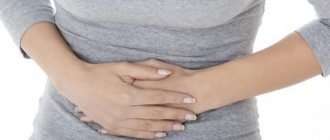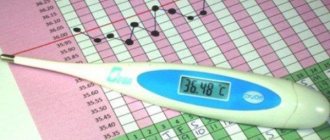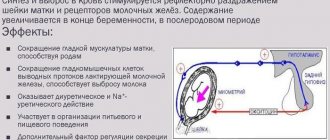Premenstrual syndrome is a rife problem faced by many of the fair sex. PMS can be expressed by symptoms such as migraines, nervousness, incontinence, nausea, and bloating.
The most annoying symptom of PMS is the presence of flatulence. Many women are interested in how many days bloating can occur before menstruation. Experts note that this kind of symptom occurs a few days before the start of menstruation and usually goes away after 1-2 days.
Reasons for bloating before menstruation
The fact is that before determining how to get rid of negative symptoms, it is necessary to find out why they occur before menstruation. Since the menstrual cycle is considered a complex process, accompanied by various manifestations provoked by hormonal changes and other factors. Stomach bloating, reasons:
- Causes of bloating before menstruation
Hormonal surge. During PMS, the amount of progesterone increases. This hormone is required for successful fertilization. Thanks to the presence of this hormone, quite favorable conditions are created in the uterus for a possible embryo. Progesterone helps to relax the uterus, and when its internal layer increases, bloating may occur, which provokes discomfort. If conception does not occur, then the amount of the hormone is significantly reduced, as a result of which the bloating disappears.
- Pregnancy. If the day of your period approaches and there is no bleeding, then it is recommended to take a pregnancy test. Particularly if menstruation is due to begin within days, but instead of discharge, the woman begins to feel unpleasant symptoms such as bloating, heaviness in the chest, nausea, swelling of the breast and limbs. When a woman begins to feel nagging pain in the lower abdomen, there is no point in delaying a visit to a specialist. Since this kind of symptomatology may be a sign of spontaneous miscarriage.
- Intestinal peristalsis. When the body is preparing for menstruation, as a rule, attention is concentrated on the pelvic area. Consequently, on such days there may be minor disturbances in the digestive tract and excessive gas formation.
- Swelling. Bloating may indicate a significant concentration of fluid in the body. This manifestation is considered a natural physiological process, since during menstruation, excess fluid will be released along with blood discharge. Water is retained, as a rule, due to a high number of hormones that help inhibit the process of removing fluid from the body. As a rule, during this period there is an increase in body weight.
- Why does bloating occur before menstruation
? Ovulation. There is still a long time before the start of menstruation, but the woman feels bloated. This symptom may indicate the process of ovulation. It should be noted that the release of an egg from the ovary is a trauma, albeit a minor one. Typically, painful sensations do not always bother women. But if such negative symptoms arise for the first time, or are accompanied by other symptoms, in this case it is better to consult a specialist. - Sometimes flatulence occurs due to the formation of a neoplasm. If a patient develops fibroids, then the following symptoms are present: nausea, vomiting, swelling, fever. In such situations, going to a specialist should not be delayed.
- An unhealthy diet can also contribute to an enlarged belly before menstruation. A few weeks before the start of the menstrual cycle, the production of a hormone that is responsible for mood decreases in the female body. Generally, the best treatment for depression is food. Consequently, nutrition is disrupted, which may well lead to constipation, gas formation in the intestines, and fermentation.
- A feeling of unattractiveness due to a sagging tummy.
- Constant mood swings.
- Feeling overwhelmed.
In addition to physiological changes, a woman during her period may also experience psycho-emotional discomfort. This can be expressed:
Premenstrual syndrome
Why does the stomach swell before menstruation, and how many days does it take to go away?
On the eve of the next menstruation, many women develop premenstrual syndrome. The condition is characterized by irritability, fatigue, nausea, swelling, and headache. In addition, there is soreness in the mammary glands, a bloated stomach, an increase in body temperature, and an increased heart rate. The list of PMS symptoms is varied and can occur in both mild and severe forms. Premenstrual syndrome affects most women living in megacities and in unfavorable environmental conditions. The reasons remain not fully understood. Today, there are several versions of the occurrence of PMS:
- the condition is caused by a difference in sex hormones that occurs in different phases of the menstrual cycle;
- the theory of the neurogenic origin of the syndrome is based on metabolic disorders of transmitters in the central nervous system;
- The hyperprolactinemic cause of the syndrome occurs due to increased pituitary hormone, which can cause reproductive, metabolic and emotional disturbances in women.
https://www.youtube.com/watch?v=CxGG0DOZ0GU
Symptoms of premenstrual syndrome can be divided into physical and psychological manifestations. Bloating is a physical symptom. As a rule, if the abdomen enlarges before menstruation, there is also pain in its lower zone. In addition, by the beginning of menstruation, the cervix acquires a hard structure and the surface becomes dry.
Bloating before menstruation can occur due to swelling. Physiology is designed to accumulate fluid for upcoming blood loss. To replenish the blood, water is needed, which accumulates and creates swelling. As a result of the accumulation of fluid in the extracellular tissue spaces, general edema develops, an enlarged abdomen, swelling of the fingers and toes, and swelling of the face are observed.
What to do if you have bloating
First of all, it is necessary to determine the root cause of this symptom. For these purposes, it is recommended to conduct research to exclude various types of diseases. As a rule, with severe bloating, it is recommended to take sedatives and antispasmodics.
Also, preventive measures can be taken. Experts note that it will not be possible to completely get rid of the signs of approaching menstruation, since this process is a physiological feature of the female body. But there is an opportunity to reduce these manifestations. It is necessary to take into account that the belly will decrease only during menstruation. To avoid bloating before your period, you must follow these recommendations:
- Approximately 2 weeks before your period, you need to include foods rich in vitamin B in your daily menu.
- Eliminate foods that cause fermentation and gas formation.
- Also, avoid eating salty and spicy foods.
- Try not to overeat.
- During menstruation, you should avoid consuming raw vegetables and fruits. It is also recommended to exclude greasy foods and legumes.
- You will also have to renounce sweets and baked goods. It is better to replace sweets with dried fruits.
- Caffeine-based drinks should be minimized.
- It is recommended to monitor your water balance. Therefore, it is necessary to consume at least 2.5 liters per day. liquids.
- How to cure bloating during menstruation
You also need to pay special attention to the way you consume food. Therefore, it is better to eat small meals, while chewing the food thoroughly.
Experts note that psychosomatics plays an important role in the manifestation of symptoms during menstruation. Because the more the patient is fixated on feeling unwell, the more severe the symptoms will be. Therefore, it is necessary to try to distract yourself and spend more time outdoors. It is also recommended to wear comfortable clothes during this period. You can perform a set of exercises aimed at directly strengthening the abdominal and back muscles.
Bloating during your period is common. But for every woman, these types of symptoms can be expressed in different ways. But it should be borne in mind that this kind of problem should not be solved on your own. Before doing anything, it is better to consult with a specialist who will recommend a more effective method of solving the problem.
Every woman experiences menstrual problems throughout her life. God has had mercy on some; they do not experience any symptoms other than short temper and irritability during menstruation. For other girls, menstruation turns into another test and nervous stress. Not only are the nerves at their limit, nausea, migraines, constant pain in the pelvic area and lumbar back develop, but in addition there is bloating before menstruation and flatulence. It seems that everyone sees her improved waist and whispers behind her back.
Why does the stomach swell during menstruation and how to prevent it?
Causes of bloating
Surely, every second representative of the fair sex is familiar with the situation when, 7-14 days before your period, you gain 1.2, and sometimes even 3 kilograms! But you shouldn’t be afraid of such an “anomaly” - often it is absolutely safe, but to make sure of this, let’s look at its most basic reasons.
Finding out the reasons
So, why does your belly get bigger shortly before your period starts? First of all, we note that every woman experiences PMS in her own way, so not everyone may experience such an “anomaly.” It all depends on several factors:
- woman's physique;
- abdominal muscle fitness;
- elasticity of the uterine muscles.
Now let's move on to a direct consideration of the reasons why the stomach swells and hurts before menstruation. The most common factors that contribute to this include:
- Changes in intestinal motility. Before the onset of menstruation, the body concentrates on the functioning of the pelvic organs. An abundant amount of blood begins to flow to the uterus, its appendages and the adjacent intestines, which can even lead to minor disorders of the digestive process. As a result, women complain that they are bloated, their stomach hurts and becomes enlarged, and they may even experience nausea.
- Hormonal changes are one of the most common reasons why the lower abdomen swells shortly before the onset of menstruation. But this often happens in women with weak muscles.
- Accumulation of fluid in tissues. Menstruation is a period of moderately heavy blood loss, which is also accompanied by the excretion of a certain amount of vitamins and microelements. Trying to compensate for them, 1-2 weeks before the start of menstruation, the body begins to actively store water. As a result, not only does the stomach increase, but swelling may also form in the arms, legs, and face.
- Ovulation. The maturation and release of the egg occurs at different times in each woman’s cycle. But sometimes the fact that the stomach hurts a little and is swollen is due to this very process. If there is still a lot of time before your period, but similar ailments have already appeared, it means that ovulation has occurred.
These are the main reasons why the stomach swells before the onset of menstruation. They do not require medical intervention, since at the end of menstruation they go away on their own.
Having understood the reasons why the belly enlarges before the onset of menstruation, let’s try to understand how to prevent this trouble. To reduce discomfort, you must follow these recommendations:
- 1-2 weeks before “these days” you should not overfill your intestines: due to overeating, a woman during menstruation may not only become bloated - it can also cause stomach pain and nausea;
- shortly before menstruation, you should avoid eating fatty, spicy, salty, smoked foods (such products lead to the retention of a large amount of fluid in the tissues of the body, which causes weight gain);
- Raw vegetables and fruits, chips and legumes should be excluded from the diet, especially if before or during menstruation a woman is very swollen and has a stomach ache;
- You need to take vitamin complexes containing vitamin E and folic acid.
These are the measures that help prevent abdominal enlargement before the onset of menstruation. If it inflates during “these” days, you need to:
- eliminate coffee or reduce the amount of it consumed;
- eat small meals (when the stomach is very swollen and hurts, this prevents additional stress on the intestines);
- do a light massage of the lower back and lower abdomen;
- take magnesium-based medications.
These simple but effective tips will help relieve discomfort and bloating during menstruation, and will also help improve a woman’s general condition.
Sometimes it happens that you gain significant weight before menstruation, but it does not come. However, the stomach hurts and is bloated, headaches and mood swings appear, as with PMS. What is this connected with?
If your stomach is enlarged and hurts, but your period does not come on time, this should be a reason to contact a gynecologist. Such disorders may indicate the occurrence of inflammatory processes in the uterus, or the development of myomatosis. Sometimes deterioration in health is associated with pregnancy, so you need to get checked in any case!
So, when you gain weight before your period, it's not scary - it's absolutely normal. If there are no problems with the menstrual cycle, and your health does not deteriorate sharply, then there should be no reason to panic. The main thing is to follow the simple rules described above, which will come to the rescue not only on “these” days, but also on all other days of a woman’s life!
How many days before your period does your belly get bigger?
The abdomen begins to increase in size before menstruation in women individually: starting from 1.5-2 weeks to 2-3 days. It depends on the presence of factors:
- Body type. A person is thin, overweight or of normal build.
- Physical training. Pumped up abdominals or weak ones.
- Elasticity of the uterine muscles. Usually weakens after childbirth. Special gymnastics is required to bring the pelvic floor muscles back to normal.
In young athletic girls, the belly does not increase before and during menstruation, but in obese and women who have given birth, bloating is observed, and a weight gain of 2-3 kg is possible. This is a natural reaction of the body, do not be afraid. On the 2-3 day of bloody discharge, waist size and weight return to normal.
Causes of bloating before menstruation
To combat unpleasant symptoms of PMS, you need to know the reasons for their occurrence. They are divided into a number of categories.
Hormonal reasons
The menstrual cycle of women is a complex process, accompanied by monthly hormonal changes in the body during the childbearing period. The changes are associated with the level of three hormones: prolactin, progesterone, estrogen. The level of estrogen increases at the time of ovulation, gradually decreasing, with progesterone the opposite: the maximum amount occurs at the beginning of bleeding. Premenstrual syndrome causes a decrease in estrogen levels while increasing progesterone.
- Endometrial growth. The female hormone responsible for preparing the body for conception and bearing a child is called progesterone. It stimulates the growth of the endometrium (the mucous membrane inside the uterus), which has a porous structure consisting of many blood vessels. The substances necessary for development are supplied to the embryo through the vessels. This is how the body prepares for conception. The uterus swells, affecting the intestines, and the size of the abdominal muscles increases. If pregnancy does not occur, the reverse process begins. The membrane peels off, leaves the body with blood during menstruation, compression of neighboring organs goes away, and the size of the uterus returns to normal.
- Swelling. These same hormones force the female body to accumulate excess water in the abdominal tissues, arms, legs, and face. During blood loss, this helps to avoid dehydration and, when processed, the fluid enters the blood.
- Ovulation. Often the belly begins to swell during ovulation. A strong hormonal surge occurs, to which the body reacts with pain, bloating, and flatulence.
Intestinal peristalsis
In the period after ovulation before spotting, blood flow to the uterus and ovaries increases. They begin to swell, squeezing the intestinal walls, causing spasms. Food moves unevenly, forming air barriers. The woman's stomach growls, swells, severe gas formation begins, and stool upset. After menstruation everything returns to normal.
Pregnancy
Perhaps pregnancy has occurred. In the first weeks it is difficult to determine. Due to the hormone progesterone, a change occurs in the body that prepares the female organs for bearing and giving birth to a child. The stomach inflates, the chest swells, and body weight increases. It is possible to independently determine pregnancy in the early stages by a hard lump in the lower abdomen. If conception does not take place, the belly remains loose and soft. A delay of a couple of weeks indicates the need to purchase a pregnancy test at the pharmacy. If the result is positive, you should contact a gynecologist.
Pathological processes
A slight swelling in the waist area does not interfere with everyday life, but if the stomach is very swollen before menstruation, constantly rumbles, and hurts, this indicates hidden human illnesses:
- Gastrointestinal diseases. Colitis and gastroduodenitis are often chronic, sometimes manifesting as acute attacks of pain. Blood and water, having accumulated in the abdominal cavity, put pressure on the internal organs, provoking an exacerbation of diseases. Gases swell the intestines, causing cramps, nausea, flatulence, and problems with bowel movements. Severe pain is likely in the lower abdominal cavity, in the navel area.
- Genitourinary system. With kidney disease, fluid is constantly retained in the body, and when menstruation occurs, the frequency of urination decreases significantly. An enlarged abdomen is accompanied by: swelling of the legs, arms, and face. Bags appear under the eyes, constant dull pain in the lower back. There is drowsiness, lethargy, and rapid heartbeat. Blood pressure rises.
- Gynecological diseases. The symptom “acute abdomen” is considered a sign of female diseases, which are characterized by severe pain and spasms radiating to the anus and lower back:
- inflammation of the ovaries, uterus;
- adhesions in the pelvic organs;
- chronic oophoritis;
- ovarian cyst;
- neoplasm: uterine fibroids. This benign tumor can develop into malignant. The presence of fibroids is characterized by a rounded tummy, as during pregnancy, then severe pain appears, and menstruation may stop. If you have fibroids, you should be under constant supervision of a gynecologist and undergo an examination once a year.
Binge eating
Thanks to the hormone progesterone, which acts on the nervous system, almost all women begin to feel hungry a week before their period. They eat a lot, become nervous and irritable.
To cheer up, you want to experience joy, have fun. The easiest way to get rid of depression is to eat delicious food. And everything tasty, as a rule, high-calorie or salty, leads to fluid retention and the appearance of a round belly.
PMS and the associated hormonal imbalance negatively affect a woman's will. If usually many limit themselves in food and refuse sweets, then here women give in.
Large volumes of food at this time are poorly digested, food masses stagnate in the intestines. The result is flatulence and bloating.
Physiological reasons
And if in the second half of the cycle you don’t eat sweets, salty foods, legumes, take vitamins, eat small meals, you can avoid the problem.
But the culprits for the increase in abdominal volume and bloating may be gynecological or gastroenterological diseases, inflammation of the bladder, pregnancy, both normal and ectopic. It is necessary to note other symptoms (fever, vomiting, diarrhea, weakness), if any, and go to the doctor.
In this case, the woman does not have to suffer much, in addition, the symptoms disappear quite quickly.
Physiological causes of bloating during menstruation include the following:
- Hormonal changes. After ovulation ends, the body begins to prepare for a possible conception by increasing the production of certain hormones, in particular progesterone. In this case, the uterus becomes enlarged due to the flow of blood to it. This not only increases the volume of the abdomen, but also contributes to compression of the intestines, which causes disruptions in its functioning.
- Swelling. This is a manifestation of the body’s protective reaction, since it is assumed that during menstruation a large amount of fluid, nutrients and microelements will be lost. The body begins to store water. Some people may experience swelling in their arms or legs, while others may experience a bloated stomach.
- Ovulation. During this period, there is an active production of female hormones, which can cause bloating and flatulence.
- Pregnancy. In the first weeks, bloating can be confused with a harbinger of menstruation. A distinctive feature will be that if the bloating is caused by pregnancy, the abdomen will be hard upon palpation.
What to do if you have bloating?
What to do to overcome this unpleasant phenomenon? You can’t get rid of it completely, but you can reduce the size and period of bloating. To do this, you need to follow a healthy lifestyle and doctors' recommendations.
Playing sports
Constantly engage in available sports: water aerobics, swimming, dancing, exercise equipment, running. During menstruation, heavy exertion is not recommended; it is better to walk long distances. While walking, gases are removed from the intestines and gastrointestinal tract much faster. Lie down only if you feel unwell. Pump up your abs, do exercises to strengthen your back muscles.
Proper nutrition
Proper nutrition is one of the main ways to combat bloating. Before menstruation, it is advisable to reduce food portions and increase the number of meals. Limit or completely avoid junk food and products that cause flatulence.
- Eat less salt. During PMS, as during pregnancy, you crave salty foods. Sodium retains water in the body, increases the load on the heart and hematopoietic system, and increases swelling.
- Limit your sugar intake. All sweets in the body are processed into glucose, which retains sodium in the body.
- Drink water. It improves digestion, helps fight constipation, and removes toxins from the body.
- Avoid tea, coffee, alcohol and carbonated drinks. They contribute to bloating.
- Drink herbal teas from mint and decoctions of chamomile, lingonberries, and cranberries. They reduce pain and remove excess fluid from the body.
- Eat foods rich in fiber. They help fight constipation.
- Keep it in moderation. When consuming large amounts, gas formation and bloating begin. A lot of fiber is found in cabbage, bran, beans, beans, and mushrooms.
- Temporarily exclude dairy products from your diet, which increase the manifestations of flatulence many times over.
- Take a complex preparation containing B vitamins, potassium, magnesium. They are responsible for digestion, strengthening blood vessels and calming the nerves.
Warm baths
Before your period starts, take warm, soothing baths. You can add sea salt, a few drops of fennel or black pepper essential oil, and a decoction of valerian, pine needles, mint, and sage herbs to the water. Baths help you relax, promote healthy sleep, and strengthen the nervous system.
Sex is good for the body. To improve your well-being and mood, doctors recommend having sex before your period. It helps blood circulation in the pelvic area and has a beneficial effect on the female body.
If your belly enlarges for natural reasons, you should not try to tighten it with a corset or shapewear. Strong compression causes severe pain due to impaired blood supply, increased swelling, intestinal spasms, and flatulence. It is better not to tighten your stomach, but to wear loose clothes.
If the abdominal volume increases, take medications depending on the cause of the bloating:
- If the main symptom is tension, pain, spasms of the intestines and uterus, then antispasmodics help well: 1-2 tablets of No-shpa, Spasmalgon, Drotaverine.
- If your stomach is very swollen, use carminatives: Disflatil, Espumisan, Antareit.
- If you experience flatulence, bowel dysfunction, nausea, use enterosorbents: Smecta, Polyphepan, Activated carbon.
The medication should not be abused. It is better to consult a gynecologist.
Bloating occurs in 75% of women. This is a normal reaction of the body to hormonal changes during premenstrual syndrome and menstruation. If the symptoms of PMS do not go away, contact a specialist and conduct a comprehensive examination. After treatment of concomitant diseases, if preventive rules are followed, a slight increase in the waist will be noticeable only a couple of days at the beginning of menstruation.
Hormonal changes in the second phase of the cycle lead to the appearance of unpleasant symptoms. Often before menstruation, the belly swells, which is a consequence of increased concentrations of progesterone.
Principles of treatment
To treat premenstrual syndrome, hormonal drugs, antidepressants, and diuretics are used. Drug therapy should be carried out under the supervision of a physician. Vitamin B6, magnesium, and calcium will help improve your general condition. You can relieve PMS symptoms at home with regular exercise; moderate exercise increases the level of adrenaline in the blood and brings emotional satisfaction. To prevent pain in the lower abdomen, a day or two before the start of your period, you should perform the “candle” exercise and other exercises that ensure a rush of blood to the pelvis. It is also necessary to adjust your diet, exclude fatty and spicy foods, coffee, and alcohol from the daily menu. And increase your consumption of foods containing calcium.
For women experiencing premenstrual syndrome, it is recommended to introduce honey, soy and seafood into the diet. Honey contains the entire periodic table of Mendeleev. Iron and manganese increase the level of hemoglobin in the blood, B vitamins improve the immune and circulatory systems. Soybeans contain easily digestible vegetable protein and valuable substances necessary for the female body. Seafood contains a large amount of valuable minerals, vitamins and amino acids, while being distinguished by its low calorie content. To avoid gaining extra pounds during this period, you need to eat foods with a low glycemic index.
You should limit your consumption of chocolate, sweet baked goods, and fatty foods. You can quell your cravings for sweets with dried fruits, natural yogurt or fruit. In order not to experience severe hunger, you should eat at intervals of 2-3 hours. Deep, long sleep is recommended for women suffering from PMS. To ensure proper sleep, you can take a walk before this. A glass of warm milk drunk at night and a honey bath will help a woman relax and fall asleep quickly. If you have signs of premenstrual malaise, you should seek medical help and undergo a course of treatment. Premenstrual syndrome that has developed over the years is more difficult to cure.
If PMS is accompanied by intestinal upset, then you should avoid foods that cause bloating: legumes, sauerkraut and raw cabbage. Preference should be given to cereals, lean meats and dairy products. Frequent meals in small portions are recommended. In case of diarrhea, you need to drink jelly and rice water. For constipation, you should introduce more plant fiber into your diet.
https://youtu.be/cG5rZdH0VME
To avoid general swelling, you need to reduce your salt intake. Follow your diet, drink more plain purified water, and do not eat sweet, salty or spicy foods in the afternoon. Shortly before your period, it is recommended to start consuming foods that have diuretic properties. Lingonberry and cranberry decoctions are good at removing excess fluid from the body. Potassium, which is rich in bananas, spinach, oatmeal, and honey, can help regulate the water-salt balance. For severe swelling, the doctor may prescribe diuretics, which should be taken 4-5 days before the start of menstruation.
Conservative treatment of fibroids includes taking medications aimed at restoring hormonal balance. To prevent anemia, iron-containing medications are prescribed. Small nodes are removed using laparoscopy. Uterine artery embolization is also used, in which the blood supply through the artery to the fibroid is stopped. As a result, the tumor regresses, and tumor decay products are removed with the blood. With a conservative myomectomy, the fibroid node is removed, while the uterus is preserved. In advanced cases, with large fibroids and numerous nodes, extirpation is prescribed - complete removal of the uterus.
Why does your stomach swell before your period?
The cycle reflects the complex hormonal processes occurring in a woman’s body. Throughout the reproductive period, monthly changes in the level of sex steroids are observed, the main of which gynecologists call:
If estrogen levels peak around ovulation, a significant amount of progesterone is produced on the eve of menstruation. PMS is a consequence of decreased estrogen production while increasing progesterone.
The abdomen swells during menstrual periods due to the following hormonal factors:
- Endometrial proliferation. Estrogens promote the growth of the endometrium. Sufficient thickness of the inner layer of the uterus is a necessary condition for implantation of the fertilized egg in the event of fertilization of a female egg by a male sperm. A swollen uterus affects the intestines, causing visual enlargement in the abdominal area. After detachment of the functional layer of the endometrium, the size of the uterine body returns to its original values.
- Swelling. Under the influence of sex hormones, fluid accumulates in the tissues of the body. This mechanism prevents blood loss during menstruation.
- Ovulation. The release of the egg from the follicle is accompanied by a hormonal surge. Increased gas formation and flatulence before menstruation are caused by the active production of progesterone. This hormone has a relaxing effect on the digestive tract.
Experts name the following reasons for bloating before menstruation:
- Features of intestinal motility. A few days before your period, blood flow to the ovaries and uterus increases. The intestinal walls are subject to compression, which causes spasms. The movement of food is uneven. This is why it often swells during menstruation. Digestive and stool disturbances may occur.
- Pregnancy. If your stomach swells before your period, you may have conceived. Progesterone causes changes in the female body for pregnancy and subsequent birth of a child.
- Binge eating. A big belly during menstruation may be the result of overeating. Increased appetite is a side effect of progesterone, which causes hunger. Typically, women experience cravings for salty and sweet foods that retain fluid in the body. Gas during menstruation occurs due to poor digestion of large amounts of food.
Sometimes the stomach is inflated as a result of pathological conditions:
- Diseases of the digestive tract. Exacerbation of colitis or gastroduodenitis is often observed during menstruation due to the accumulation of water and blood in the abdominal cavity. The gases produced lead to flatulence, cramps, nausea and constipation. Pain may occur in the lower abdomen.
- Diseases of the genitourinary system. Fluid is retained in tissues during pathological conditions of the kidneys. After the onset of menstruation, the number of urinations decreases. In women, the stomach swells, swelling appears, and blood pressure rises.
- Gynecological pathologies. Inflammatory processes and benign tumors are characterized by acute pain that can radiate to the anus and sacrum. The abdomen is inflated with adhesive disease, adnexitis, formations of the uterus and ovaries.
Prevention
Knowing why the stomach swells during menstruation, with the help of certain measures you can eliminate unpleasant symptoms. But it is completely impossible to get rid of them, since this is a natural process associated with physiology. Basic preventive measures:
- A couple of weeks before menstruation, include in your diet foods containing B vitamins - nuts, yeast, beans, cheese, fish, milk, buckwheat, potatoes, eggs, etc.
- Avoid foods that cause fermentation - confectionery, grapes, kvass.
- Avoid spicy, salty and smoked foods.
- Limit chocolate and coffee.
- Drink up to two and a half liters of water daily.
- Reduce the amount of salt you consume.
Decoctions of medicinal plants will help prevent gas formation and bloating. You can use dietary supplements that contain many valuable microelements and vitamins. Gynecologists often prescribe medications to normalize hormonal levels.
Only an experienced gynecologist can determine the reasons why the stomach is bloated. Therefore, contacting a specialist is mandatory.
Monthly menstruation is a process that confirms that the female reproductive system is working smoothly. But often it is accompanied by poor health for the woman herself. Bloating during menstruation and before it should occur can be directly related to the process of ovulation, or menstrual periods are a kind of catalyst for the real reason why the stomach begins to swell during menstruation.
In most cases, bloating during PMS is not a pathology and turns out to be one of the symptoms that appears before menstruation.
During this period, a woman’s body increases the amount of the hormone progesterone necessary for conception. Its action is also aimed at providing the potential fetus with comfortable conditions in the mother’s uterus. Progesterone relaxes the uterus, and its inner layer - the endometrium - thickens, resulting in a slightly bloated abdomen.
If conception does not occur, within a few days the amount of progesterone in the body decreases again, and the effect of a bloated belly disappears.
But there are other reasons why some women experience bloating during and before their periods. Most of them are also associated with the effects of sex hormones on various body systems.
How many days before menstruation does bloating appear?
Abdominal enlargement before menstruation is individual. The belly swells 2-3 days before menstruation. Some women notice bloating 1.5-2 weeks before the onset of their period. Sometimes the belly increases during menstruation, which depends on the following factors:
- body features;
- physical fitness (pumped up or weak abs);
- elasticity of the muscles of the uterus, which weakens after childbirth.
In young girls who play sports, the belly does not increase before menstruation. An increase of 2 kg in weight is observed in women who have given birth and overweight women. As a rule, on the 3rd day of the cycle, waist size and weight return to normal.
What to do about bloating during menstruation
When the stomach is inflated, you can use medications and traditional medicine.
Medicines for bloating during menstruation
Depending on the cause of the increase in waist size and flatulence, the following medications can be used:
- antispasmodics (Spazmalgon, No-shpu, Drotaverine) for uterine and intestinal spasms;
- carminatives (Espumizan) for increased gas formation;
- enterosorbents (Smecta), if the abdominal cavity is inflated due to flatulence and stool disturbances are present.
Folk remedies for bloating before menstruation
In the absence of pathologies from the digestive system during menstruation, it is useful to add to the diet:
- parsley decoction;
- dill water;
- water infusion of cumin;
- crushed carrot seeds (cumin, dill);
- potato juice;
- Mint tea.
Diet for flatulence before menstruation
If the abdominal cavity inflates during menstruation, you must adhere to the rules of a healthy diet:
- It is recommended to reduce the portion size and increase the number of meals.
- It is advisable to limit or exclude from the diet foods that cause flatulence.
- You need to consume less sugar and salt, which retain fluid in the body and create additional stress on the heart.
- It is better to replace coffee and strong tea, which contribute to flatulence, with plain water.
- For concomitant pain syndrome, herbal teas and fruit drinks made from cranberries and lingonberries are useful.
Intestinal problems
Many women complain of intestinal problems the day before or during menstruation. Intestinal upset is expressed in the form of frequent bowel movements, constipation or diarrhea. The presence of flatulence and cramps in the intestines can cause the stomach to become enlarged before menstruation. The reasons for these symptoms remain unknown.
It is believed that changes in hormone levels may affect intestinal function. As a rule, the functioning of the digestive tract returns to normal as soon as menstruation ends. Progesterone has a relaxing effect on the intestinal muscles, impairing its functioning, which causes fermentation and increased gas formation. In this case, bloating during menstruation goes away after it ends.
An enlarged belly and mammary glands on the eve of menstruation may have the simplest explanation - pregnancy. If your menstrual flow is delayed, you should take a pregnancy test. When bloating is associated with pain, there may be a threat of miscarriage or ectopic pregnancy. In this case, you should immediately seek medical help.
Physiological aspects of menstruation
During menstruation, the female body is cleansed. By the end of the cycle, the inner mucous membrane of the uterus is ready to receive a fertilized egg. If fertilization does not occur, the concentration of the hormones estrogen and progesterone decreases sharply. As a result, the endometrium disintegrates and is rejected by the body, removed from the vagina along with blood.
Menstruation is a consequence of numerous small hemorrhages. They continue until the exfoliated endometrium is completely released from the entire surface of the uterus. Cleansing may take from 2 to 7 days (depending on the physiology of the female body).
Why does the belly get bigger before menstruation?
The endometrium of the uterus resembles a loose, porous sponge. It contains a large number of blood vessels. A heavily swollen uterine wall gives extra volume to the abdomen during menstruation. 12–13 hours after the start of vaginal bleeding, the uterus returns to its original size. The size of the abdomen decreases.
This symptom is not common to all women of reproductive age. Classification of the reasons why the belly is swollen before menstruation:
- external: weak abdominal muscles, woman’s physique, elasticity of the uterus, etc.;
- internal: changes in hormonal levels, intestinal motility, ovulatory period, diseases, etc.;
- pathological: uterine fibroids, ovarian tumors, etc.
Exogenous factors
These causes of an enlarged belly cannot be eliminated. They are associated with the physiological characteristics of the female body:
- Body constitution. Blood relatives, for example, mother and daughter, face such an aesthetic problem.
- Elasticity of the uterus. As epithelium accumulates, the organ increases in size and puts increased pressure on the abdominal wall.
- Weakened abdominal muscles.
Endogenous
These are internal reasons that are not always subject to correction. They are not considered pathological, but should not be ignored:
- Excess fluid in the body, swelling. During menstruation, the body stores water. The uterine epithelium works like a sponge, temporarily increasing the size of the reproductive organ.
- Hormonal background. Due to the activity of sex hormones, the uterus increases in size. This affects intestinal function and increases the number of fat cells.
- Ovulation. The egg is released from the ovary, and a hormonal surge is observed. During ovulation, the stomach swells and internal discomfort appears.
- Intestinal peristalsis. With premenstrual syndrome, the functioning of the gastrointestinal tract is disrupted. Possible symptoms: flatulence, bloating, increased gas formation.
Pathological causes of bloating
If there is no pregnancy and menstruation does not come, you need to contact a gynecologist, undergo an examination, and rule out pathology. A large belly before menstruation may indicate internal diseases:
- tumors of the pelvic organs of a benign or malignant nature;
- ectopic pregnancy;
- disorders of the digestive tract;
- inflammation of the genitourinary system.
If the lower abdomen blows in women before menstruation, the following additional symptoms should alert you:
- frequent urination;
- high body temperature;
- nausea, vomiting;
- nagging pain in the lower part of the peritoneum;
- unusual color and intensity of blood discharge during menstruation.
Other reasons
It happens that the abdominal area can swell both before and during ovulation. In many ways, bloating during menstruation depends on the characteristics of the body of a particular woman.
For what reasons can this condition occur:
- due to the characteristics of intestinal motility;
- due to the appearance of swelling;
- during the period of ovulation;
- during pregnancy;
- with the formation of uterine fibroids.
When premenstrual syndrome is accompanied by a bloated belly, and diarrhea, constipation or flatulence occur, this may be due to personal characteristics of intestinal motility. Sometimes the condition is due to the fact that before menstruation, a woman’s appetite sharply increases, her usual diet changes, and the digestive system cannot cope with the load.
For some, the intestines, like the uterus, relax under the influence of progesterone.
A bloated belly can be caused by excessive fluid accumulation in the body. In this case, the limbs are also susceptible to swelling, to the point that the fingers become very swollen. There is no need to be afraid of this. Before menstruation, the body usually accumulates water in the cells and intercellular space, which will leave it along with menstruation, and new water will be produced instead. In addition, if the bleeding is not replaced with fluid, this is fraught with serious consequences for the body.
Water retention is caused by increased levels of hormones: estrogen, progesterone and prolactin. They provoke the accumulation of sodium, which inhibits the removal of water from tissues. And the hormone vasopressin slows down the flow of urine.
It is because of the accumulation of fluid that some women experience regular weight gain during their menstrual periods. You shouldn’t pay special attention to this, since when the water comes out, the extra pounds go away.
To avoid the accumulation of large amounts of water and promote its renewal in the body, there is no need to limit drinking. On the contrary, it is better to regularly supply the body with fresh water so that it does not feel lack of it.
Bloating in the middle of the menstrual cycle is most likely associated with the ovulation process. Sometimes you feel so-called ovulatory pain, which is unpleasant but tolerable. Their cause is a rupture in the wall of the follicle from which the egg is released (this is ovulation). It may cause a slight pulling effect.
If a woman experiences bloating and does not have her period, this may indicate that she is pregnant.
And if there is also swelling in other parts of the body, especially the mammary glands, then it’s time to go to the pharmacy for a test. Some tests can show results as early as 8 days after expected conception. However, the test is not able to detect, for example, an ectopic pregnancy. To do this, you must undergo an ultrasound.
If, along with other symptoms in the lower abdomen, women planning to replenish their family experience pain, nagging pain, they are advised to hurry to the gynecologist. Such manifestations occur when spontaneous miscarriage is possible.
In addition to natural causes, the stomach may swell before menstruation due to the appearance of tumors. Often this turns out to be uterine fibroids. The fact that bloating during menstruation is caused by pathological processes is indicated by accompanying symptoms: pain, nausea, fever, persistent swelling, vomiting. If they appear, you should consult a doctor.
What to do if your belly gets bigger before your period
Weight gain before menstruation is a temporary phenomenon that goes away 1-2 days after the start of menstruation. You can avoid such an unpleasant symptom. Expert recommendations:
- In the second phase of the menstrual cycle, exclude alcohol, carbonated drinks, and energy drinks from your daily diet.
- Before your period, enrich your daily menu with herbal decoctions of chamomile, mint, lemon balm (instead of tea).
- Limit your salt intake, as this food component contributes to the accumulation and stagnation of fluid in the body and swelling.
- If you have heaviness in your stomach, temporarily avoid sweet, smoked, fatty foods, and foods that increase gas formation.
- If your stomach is bloated, take B vitamins, potassium, magnesium. Such drugs also have a beneficial effect on the nervous system.
- When your stomach growls, take a course of probiotics and prebiotics. One of the reasons for such symptoms is dysbiosis.
- If swelling occurs, drink a decoction of chamomile, fennel, and cardamom. Drink ginger drink and green tea.
- When bloating and rumbling, perform simple exercises. For example, lying on your side with your knees bent, grab your limbs and press them to your chest. Perform 15 repetitions.
- 10 days before your period, do not overeat, adhere to the rules of proper nutrition.
- If bloating is accompanied by pain and your period does not come on time, seek medical help.
https://youtu.be/8AC3_TYA0Lk
How to prevent bloating before your period
You can avoid this unpleasant phenomenon. To do this, you must follow certain rules:
- In the second phase of the menstrual cycle, it is necessary to change your diet. Nutrition should facilitate the digestion process without loading the intestines. Light food boiled or steamed. Avoid foods that cause gas. For example, cabbage, legumes, coffee, fresh cucumbers, milk.
- You will need to limit your salt intake. This component promotes the accumulation of fluid in the body. You should avoid salty and smoked foods.
- Carbonated drinks will have to be excluded.
- B vitamins, as well as potassium and magnesium, have a beneficial effect on the functioning of the digestive organs. Taking a complex of vitamins will not only get rid of belly fat, but also improve the condition before menstruation. Calms the nervous system.
- Decoctions of herbs - chamomile, mint, lemon balm - can reduce gas formation before menstruation. For 1 cup of boiling water, 0.5 teaspoon of each ingredient. Leave for 15-20 minutes. You can add a spoon of honey. Drink warm, like regular tea.
Sex will help get rid of the unpleasant phenomenon. Sexual intercourse affects blood flow, improves the functioning of the digestive organs, and distracts psychologically from an exciting issue. And when her period ends, a woman will fall in love with her belly again.
Why does the stomach swell before menstruation? This question interests women of all ages, because almost everyone is faced with an unpleasant symptom. Many girls experience severe abdominal enlargement, and it can be caused by a variety of factors.
Each woman is different - its duration varies from 21 to 35 days. In the middle of the cycle, the egg matures and begins to move towards the uterus. That is, if its duration is twenty-eight days, conception is possible on the fourteenth day from the start of menstruation. It is at this moment that the abdomen increases, this process is often complemented by other symptoms: pain, heaviness, stool disorders and other symptoms.
Many women report swelling in their legs. In some cases, bloating that occurs before and during menstruation is considered normal, but sometimes it is a sign of dangerous diseases. Therefore, you should not self-medicate; it is better to consult a doctor who will determine the cause of the problem.
Not all women have an enlarged belly before menstruation. Every woman experiences premenstrual syndrome differently. Provoking factors are body type and elasticity of the uterine muscles.
- First sign of pregnancy
One of the reasons for bloating observed before menstruation is pregnancy. A slim figure depends on progesterone, the main task of which is to prepare the reproductive organs and the entire body for the possible conception or bearing of a child. And he does it every month, regardless of whether pregnancy is planned or not.
After fertilization, the egg must attach to the wall of the uterus, which becomes softer and thicker to hold it. In addition, to successfully carry a child, the uterine stack must contain many useful elements. Progesterone causes loosening and thickening of the female organ, filling it with vitamins and fluid. This is why there is bloating during menstruation. When the body realizes that there was no conception, the endometrium begins to exfoliate and comes out - this is menstruation. Within twelve hours, the uterus returns to its previous size, and the abdomen decreases in size. If fertilization has occurred, before the expected menstruation, the woman will notice the growth of the abdomen, and it becomes hard - this is a sign of the successful development of the unborn child.
- Hormonal changes
To understand why the belly increases before and during menstruation, it is important to know physiology. Hormones have a great influence on the functioning of the body. In women, all processes occur differently than in men. The main reason is precisely the reproductive function. A slight increase in body weight before menstrual bleeding is a natural physiological phenomenon.
In the second phase of the cycle, the level of progesterone increases sharply, as a result of which the functioning of all organs, including the stomach, intestines and nervous system, changes. As a result, girls eat constantly and become irritable for no apparent reason. The stomach changes only before menstruation, and when it comes, everything returns to normal. In the absence of any disorders or diseases, it is enough to wait a few days, and the unpleasant phenomenon will pass.
In addition, female hormones disrupt the water-salt balance and retain fluid inside. At the same time, the production of vasopressin increases, a hormone that reduces. The fluid is designed to compensate for the upcoming blood loss; for this, it accumulates in fat cells. This is another reason why the stomach swells before and during menstruation.
- Poor nutrition
With an unbalanced diet before menstruation, gas formation is possible. Two weeks before menstruation, the amount of the hormone that ensures a good mood decreases. Because of this, the girl becomes nervous and irritable. One option to solve the problem is to eat sweets. In this case, hormones affect all smooth muscles, including the intestines.
An unhealthy diet inevitably causes constipation, fermentation and gas, resulting in a swollen and swollen belly before your period. A balanced diet, including foods rich in minerals and vitamins, will solve the problem.
- Internal diseases
All previous cases are considered normal. But in some situations, the question of why the stomach is swollen before and during menstruation should cause alarm. The development of pathologies is promoted by:
- kidney and liver pathologies;
- diseases of the stomach and intestines;
- gynecological diseases;
- malignant and benign tumors.
As a rule, unhealthy abdominal enlargement is possible with neoplasms in the pelvic organs. In gynecology, fibroids are most often diagnosed. In addition, even a small tumor in the genitourinary system can cause bloating. Therefore, it is advisable to undergo a comprehensive examination several times a year to prevent the development of serious pathologies.
You should also consult a specialist if bloating is accompanied by pain, high fever, or nausea.











